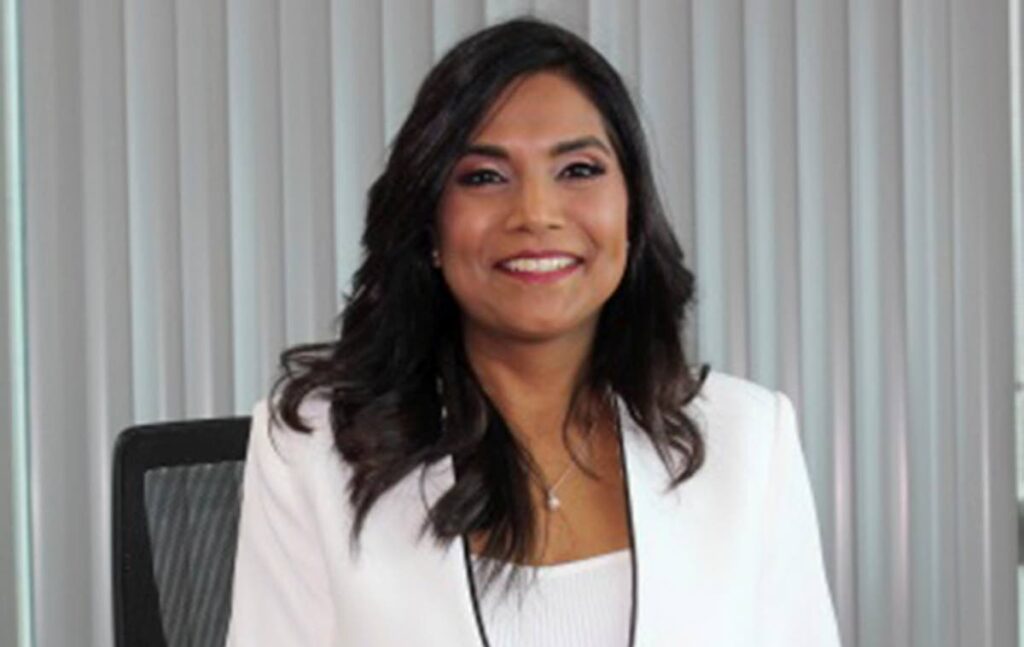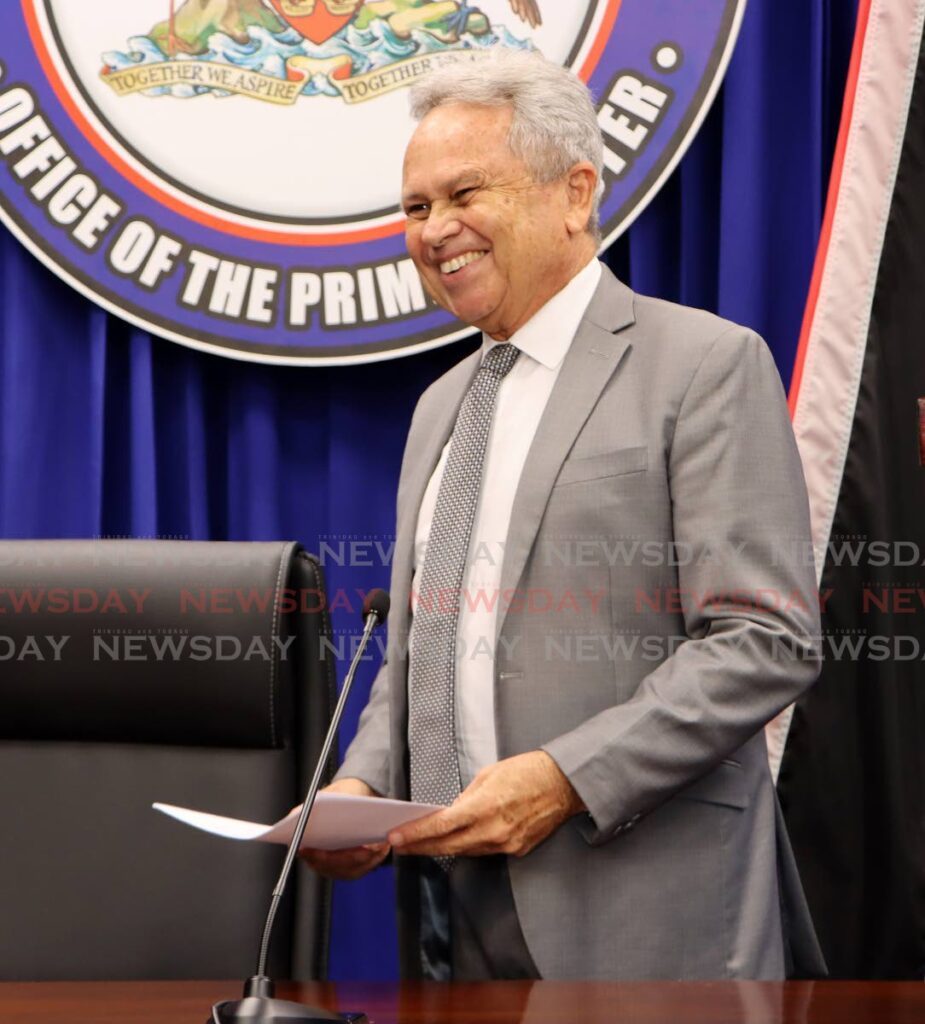Judge blanks Jaiwantie – way clear for investigation into Auditor General

AUDITOR General Jaiwantie Ramdass has not been given permission to challenge the Ministry of Finance and the Cabinet over a decision to appoint an investigation team to probe into a recent impasse between her office and the ministry.
In a written ruling on June 3, Justice Westmin James refused Ramdass leave to pursue her judicial review claim.
This means the team led by David Harris team can go ahead with its Cabinet-ordered probe. Harris, a retired judge, and former audit director David Benjamin were appointed in early May and given two months to complete their probe.
James ruled that the Auditor General had not presented an arguable case with a realistic prospect of success at trial. As a result, he will no longer need to consider an injunction she sought to pause the probe temporarily.
In his ruling, James disagreed with Ramdass’s argument that to allow an investigation would lead the Executive to exert control over her office.
"I disagree, not every action can constitute interference in the functions of an office holder or a direction to the officer holder in the conduct of their duties."
He said the probe and the remit of the Harris team were not a disciplinary one but investigative.
“The remit of the investigation team is a broader investigation involving other stakeholders. including the Central Bank of TT and the Ministry of Finance, and a fact-finding exercise, not telling the applicant what to do or exert control over her or her office.
“That is clearly within the remit of the minister and Cabinet to be able to advise itself in the formulation of policy, including legislative policy and reform as necessary.”
He said from Ramdass’s own evidence, an investigation of some sort was reasonable.
James said the Auditor General’s own findings and statements indicated the ministry recognised there “were errors of billions of dollars of public funds.
“The circumstances and procedures for submitting amended reports and the applicant’s serious allegations of other public officials of backdating accounts are matters of serious public importance.
“The ability of the applicant to verify accounts and conclusions within her report are of extreme concern to anyone, much less the Executive.

“Just as the applicant was entitled to do her own enquiries, raise her concerns about the actions of other public officials, make conclusions in her report and about members of the Executive, so too can another part of the Executive look into the facts surrounding the issue, which may include her actions and conclusions.”
He said Ramdass, as Auditor General, would want any error in procedure or substance not to be repeated.
“The applicant would also also want those public servants, public officials, to evaluate their processes and make the relevant changes.
“What other way to achieve this than to have an investigation by an independent committee?
"This would not be meaningful if the interaction with the applicant’s own department and the facts surrounding her responses, findings and conclusions cannot be considered.”
He also dismissed Ramdass’s bias argument.
“In this case, the minister used a discretionary power for the purposes of the recommending an investigation.
“It can be agreed between the parties that there was a serious matter of public importance that required investigation and that choice fell within the discretion assigned to him by the Constitution in the performance of his duties to recommend to Cabinet.
“The minister had to choose among doing nothing, carrying out the necessary investigations himself or recommending another body to carry out the investigation.
“The minister in making his choice at the time was not performing an adjudicative function in which he was acting as a sort of judge.”
James also offered advice to the Auditor General and the minister to “choose their words carefully” regarding each other and the situation “to avoid undermining their respective offices or each other in the public's view, whom they serve.
“As public officials, their actions are subject to scrutiny and comment, which should not always be perceived as an attack. This investigation presents an opportunity to establish the facts of this serious matter, highlighted and brought to the public’s attention, which is of significant public interest.
“It provides a chance for all parties to be heard and to formally document their positions and determine the best way forward.”
He did not make an order for Ramdass to pay the State’s costs, since, he said, her bringing the case was “understandable.
“The applicant feels attacked and is seeking to maintain the independence of her office.”
Ramdass filed the lawsuit after Finance Minister Colm Imbert refused her request to stop the investigation.
Her lawyers contended the investigation is unconstitutional and illegal because neither the Finance Minister nor the Cabinet has the jurisdiction to probe the conduct of the Auditor General. They claim that she does not want to avoid the probe, but was only willing to participate if it was deemed lawful.
What happened
The dispute arose in April after the ministry sought to deliver amended public accounts to explain and rectify the error.
Ramdass initially refused receipt, as she claimed she needed legal advice on whether she could accept them after the statutory deadline for submission. Ramdass eventually accepted the records and dispatched audit staff to verify them. She then submitted her original annual report. which was based on the original records, to Parliament.
In subsequent legal correspondence between the parties, Ramdass claimed her audit team was unable to reconcile the amended records based on documents it audited. She also contended the amended records appeared to be backdated to the original statutory deadline date in January. Ramdass also took issue with the fact that the discrepancy was initially estimated at $3.4 billion.
Imbert has repeatedly denied any wrongdoing. His lawyers claimed the reconciliation after the initial estimate revealed that the variance was in fact $2,599,278,188.72, which was attributed to Value Added Tax (VAT), Individual, Business Levy and Green Fund Levy contributions.
They also claimed that checks in relation to the approximate $780 million difference between the initial and final estimated variances attributed it to tax refund cheques to taxpayers issued for the 2022 financial year being cashed in the financial year 2023. They attributed the error to a switch by the Central Bank from a manual to electronic cheque-clearing system.
Lawyers also claimed there was no backdating, as they noted the allegation was made because a document related to the original public accounts was inadvertently included in the revised documents. They also contended that Ramdass acted illegally in initially refusing to accept the amended accounts. However, they claimed their client had decided against taking legal action against Ramdass over this.
On May 19, the Prime Minister said he was awaiting the outcome of the independent investigation. He also expressed surprise and disappointment that the matter had been converted into an unnecessary bacchanal in the public domain.
The Auditor General’s report has since been laid in Parliament.
She was represented by Anand Ramlogan, SC, Jodie Blackstock Kent Samlal, Natasha Bisram and Aasha Ramlal.
Senior Counsel Douglas Mendes, Simon de la Bastide, Jo-Anne Julien, Jerome Rajcoomar and Sonnel David-Longe represented Imbert and the Cabinet.

Comments
"Judge blanks Jaiwantie – way clear for investigation into Auditor General"